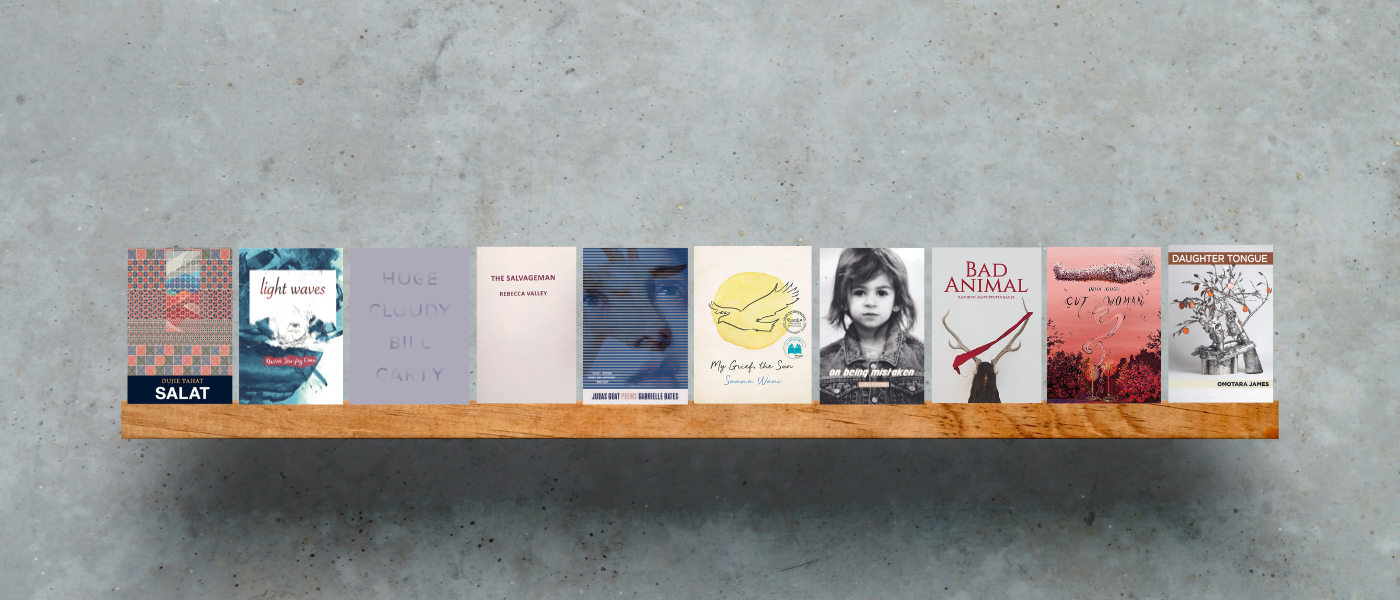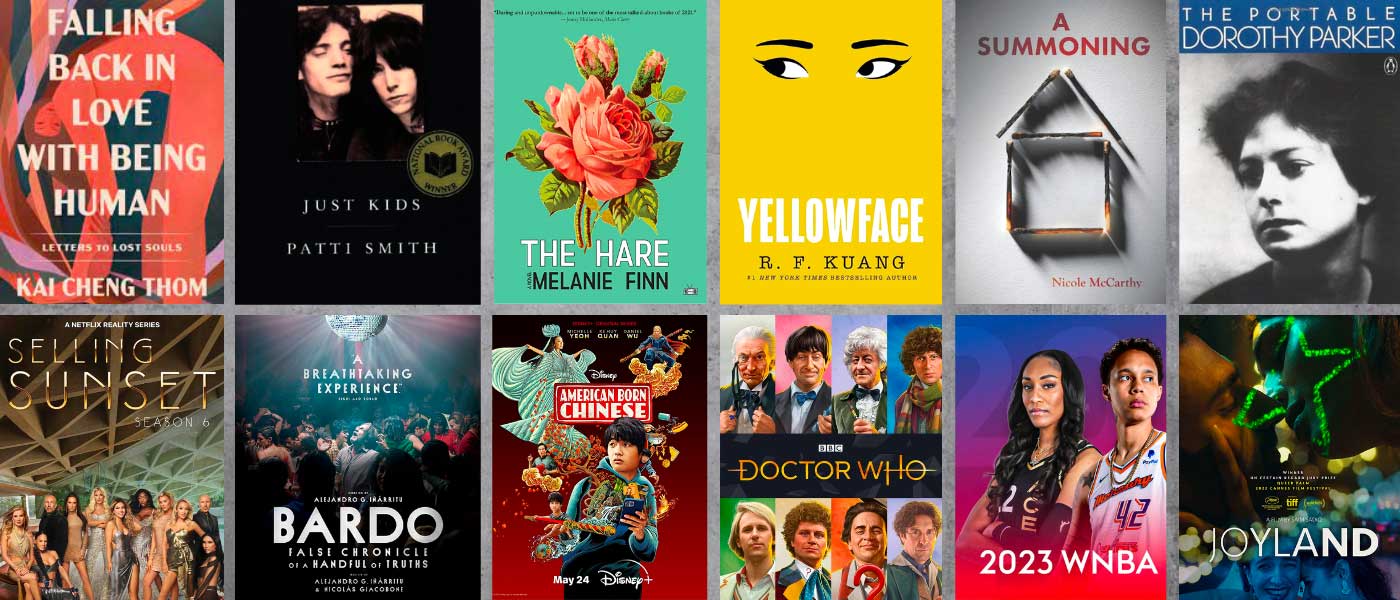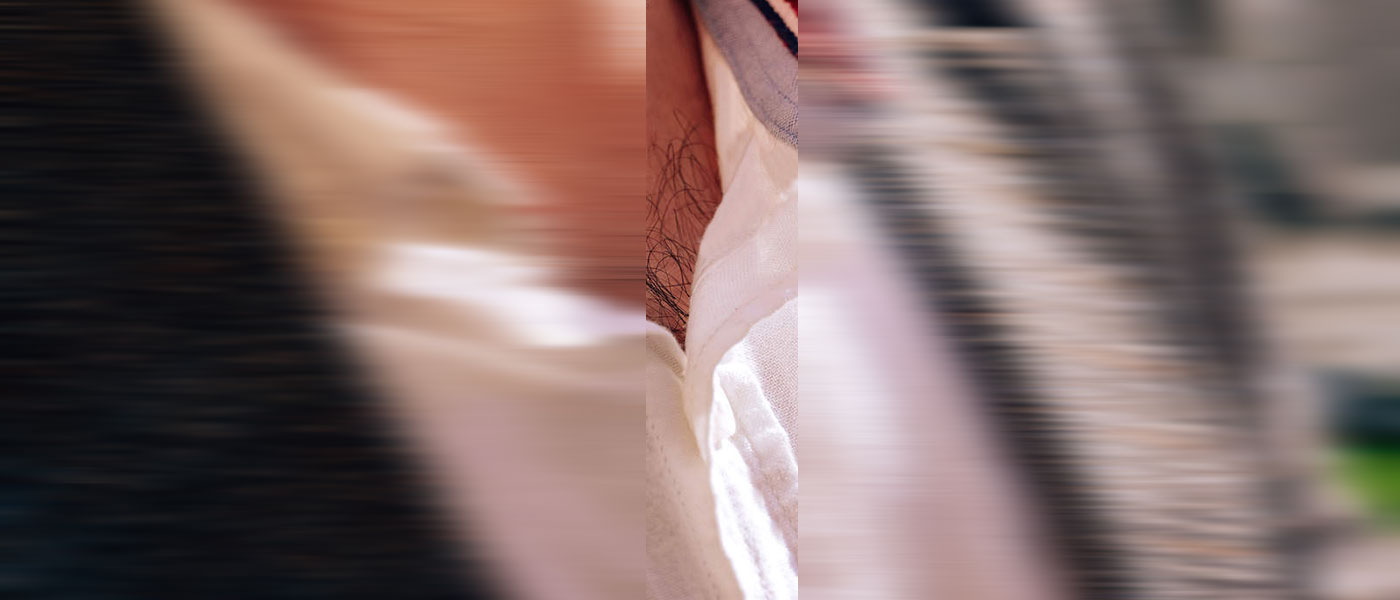We are living between the insufficiency and violence of language.
Still, words matter.
Because in a single word is a world: a name, a land, a future, a home. When you string enough words together, you create a narrative. And so we know this intimately, too: narratives matter, especially the ones that are being silenced, oppressed, and erased. As we’ve seen time and again and today, narrative is the foundation — a political prerequisite — for war and genocide. No violence occurs in a vacuum.
Like many others, we are feeling the shared outrage of this moment, and we are at a loss for how to understand the magnitude of death we’re currently witnessing. It should not be a partisan stance to grieve the loss of life: grief has no boundaries. And so we say: Ceasefire now. Stop the genocide of Palestinian people. If this moment doesn’t teach us how interrelated our global suffering is, how intertwined our struggles are and continue to be, then we are not listening, and we will never learn.
We cannot turn away. In unanswerable times like these, we at The Seventh Wave are leaning into our practice of deep questioning to critically reconsider narratives that are being created in real time. As a BIPOC- and queer-led literary arts nonprofit founded on the idea that genuine dialogue has the potential to shift cultural paradigms, we have always traded in question. To us, that means acting from a place of nuance, and in exchange, offering space for mistakes, vulnerability, and growth. We are not naive: nuance will not stop the genocide happening in Gaza. Nor will it ever feel big enough to contain the devastation of the October 7th attack in Israel. But nuance is art, art is political, and politics is where we wake up.
Our work is in continuing to question dominant narratives. To bear witness to what is happening and to create art and story from our disparate perspectives. To hold history accountable.
The Seventh Wave deepens its commitment to and solidarity with oppressed, occupied, and marginalized people and communities worldwide. We feel, and fear, for our Jewish, Muslim, and Arab contributors as we watch, in real time, the surge in antisemitism and Islamophobia around the world — just as we have feared for our Black, Indigenous, Asian, diasporic, queer, and trans contributors, and contributors of all marginalized identities.
We will continue to dedicate resources toward collective healing and solidarity. Tap here to see our list of actionable resources, which we will continue to add to.
As words are what hold us together in space and time, we’ll end with a quote from Palestinian-American writer Hala Alyan, whom we interviewed in 2020 about her book, The Arsonists’ City. Our interviews editor asked Hala what she thought about the phrase “rebellious joy,” which was the topic for our issue at that time, and this is what she said:
I think of curiosity when I think of rebellious joy. I think of people turning towards life even in the most dire and worn down circumstances. When I hear rebellious joy, I think of people insisting on continuing, and continuing, and continuing — continuing because you have the belief somewhere deep down inside, like deeply, deeply felt, that things will shift.



